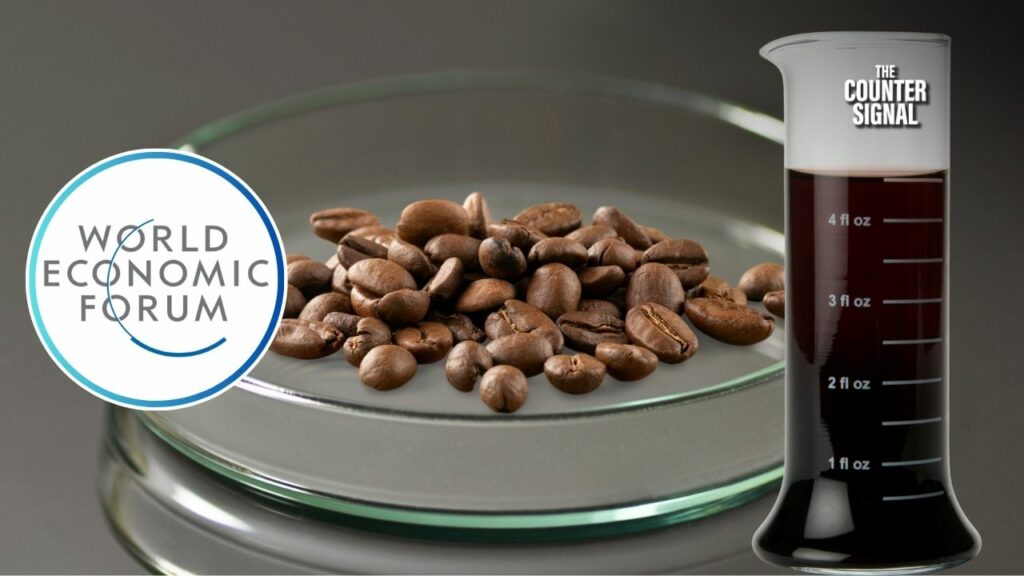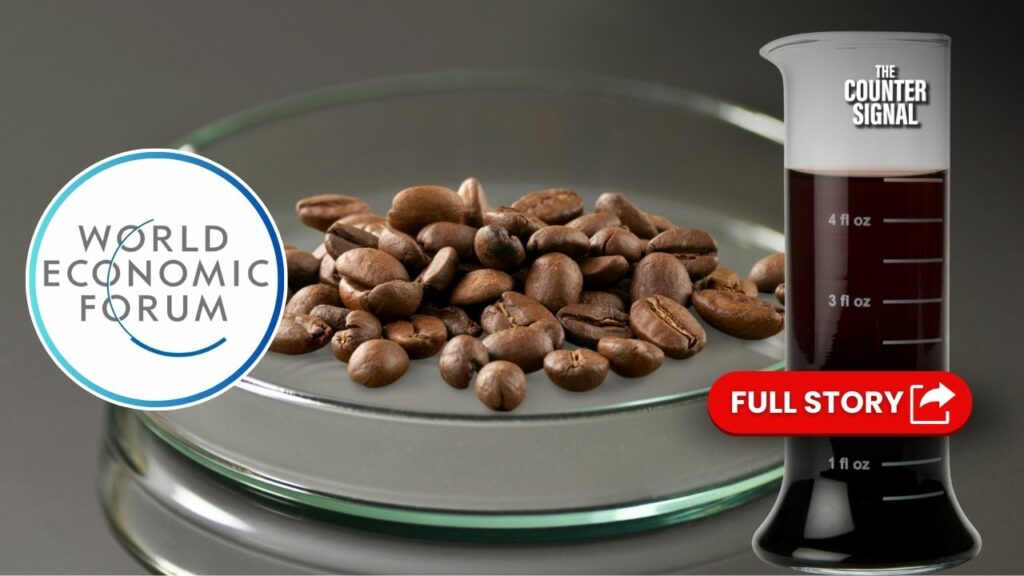Synthetic coffee, which the WEF began promoting years ago, is officially a thing that people are expected to drink to save the world from climate change.

Atomo Coffee, which brands itself as “the most sustainable coffee on the planet”, is now selling coffee made with “upcycled and superfood” ingredients, with those ingredients primarily coming from food waste.
“Giving food waste a second life enables us to preserve precious environmental resources,” the company writes.
Some of the ingredients used in their highly processed super-blend include pea protein, lemon, Ramon seeds, date seeds, millet, fenugreek, guava, baking soda, and fructose. As for where the caffeine in the synthetic coffee comes from, the company says they use caffeine extracted from green tea leaves.
How collecting and processing all of these ingredients is more sustainable than just using coffee beans is anyone’s guess.
The WEF has been promoting synthetic coffee for years
Apparently, the WEF was once again ahead of the curve on this one, promoting Atomo in an article dated October 20, 2021. In the article, the WEF commends the company for trying to “hack the coffee bean” and promotes lab-grown beans even at the expense of workers in the currently existing industry.
They also focused on a Finish project in which scientists created artificial coffee cells in Petri dishes, which they call “cellular agriculture”.
More recently, the WEF has been on a crusade against natural coffee.
“Every time we drink coffee, we are basically putting CO2 into the atmosphere,” WEF speaker Hubert Keller said at the 2024 annual WEF event in Davos during a panel entitled Putting a Price on Nature.
The title of the panel itself is incredibly telling. Attacking ‘pollution’ from fossil fuels isn’t good enough anymore; the WEF wants to wage war on nature itself.
Keller added, “The coffee that we all drink emits between 15 and 20 tons of CO2 per ton of coffee, so we should all know that,” further stating that the abundance of high-quality natural coffee grown through monoculture may deteriorate in the future as a result of climate change.













